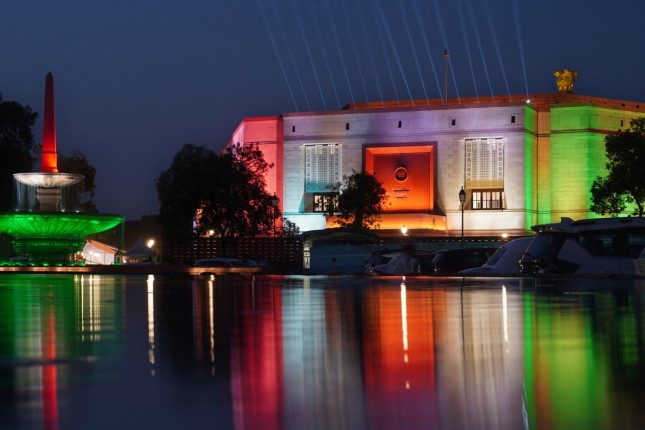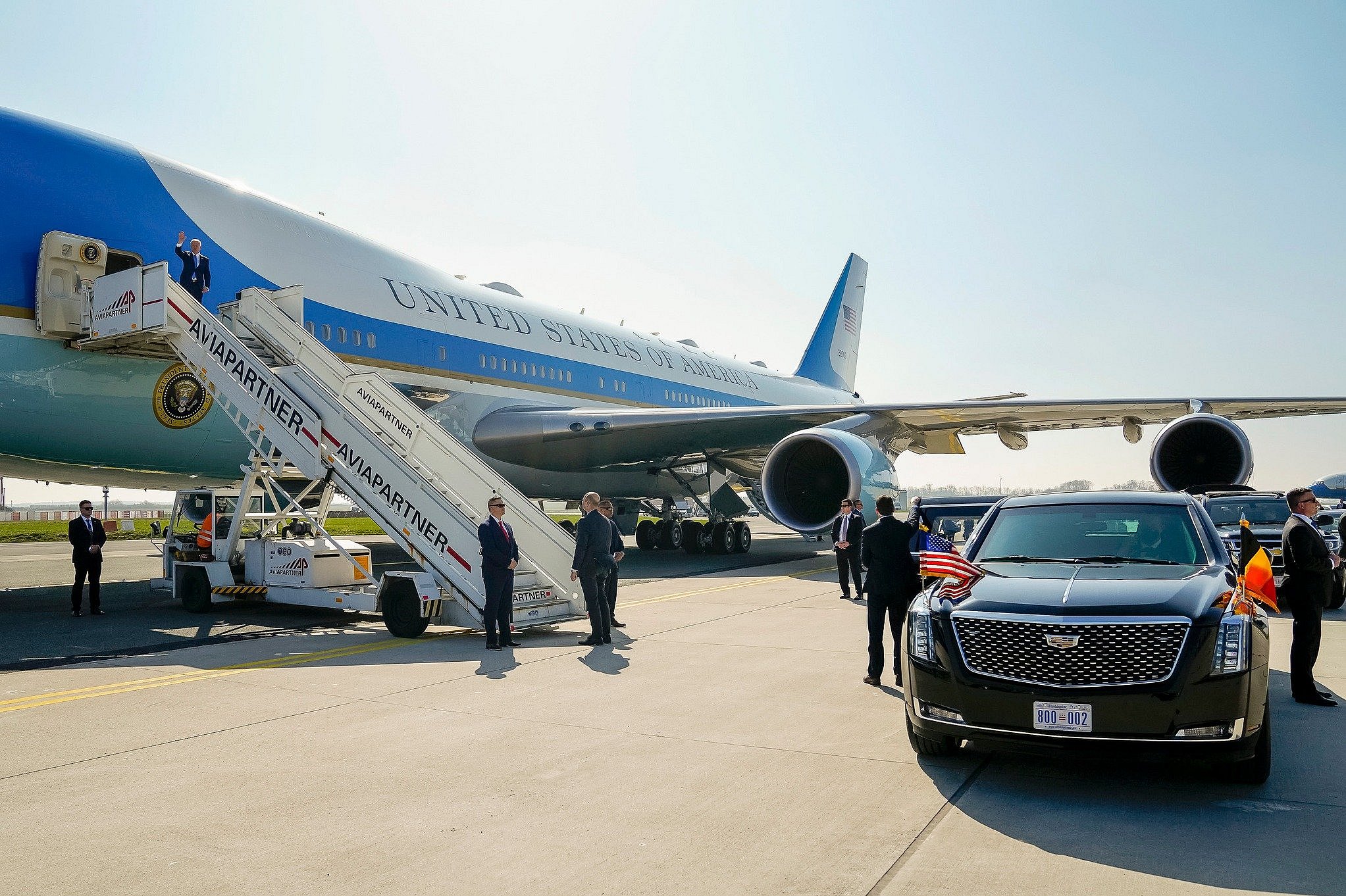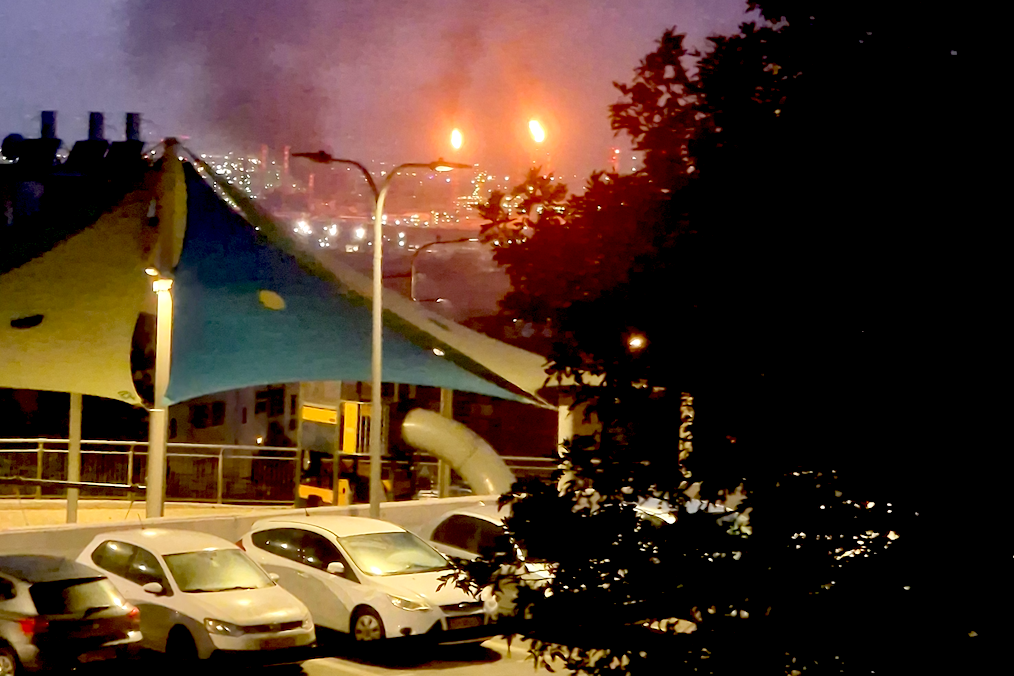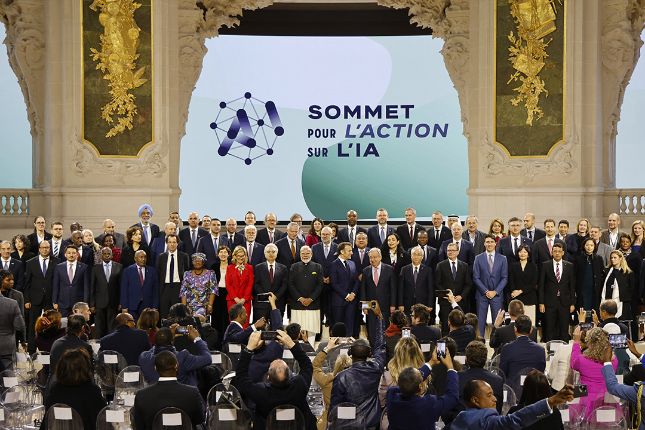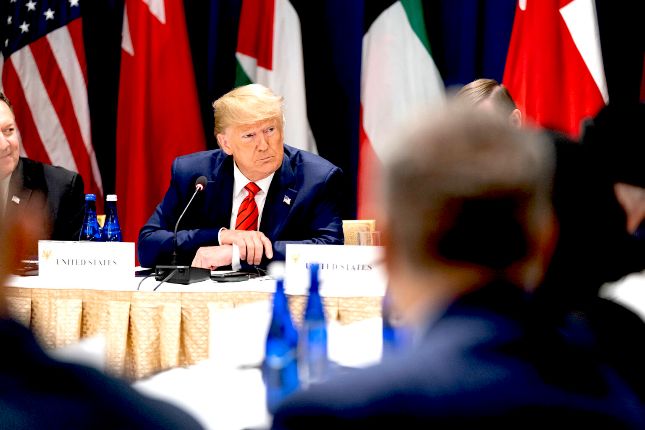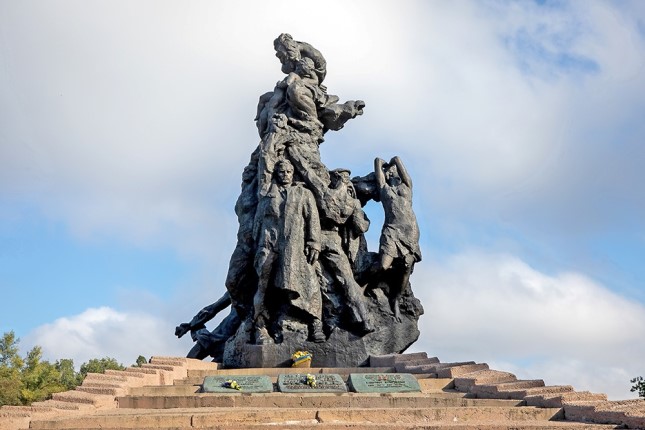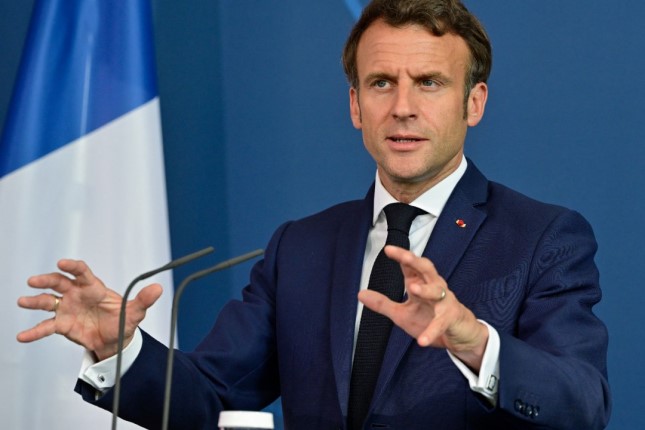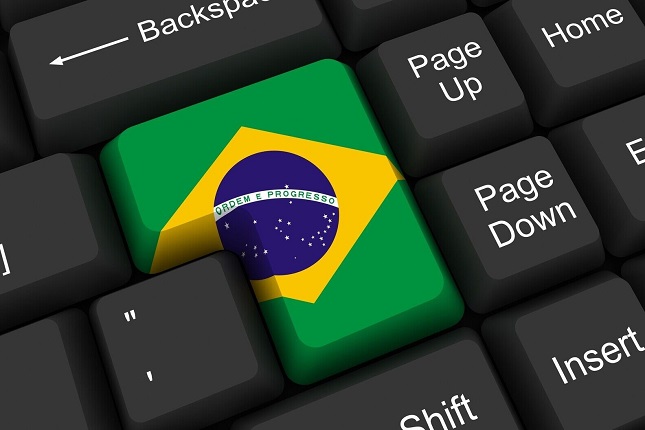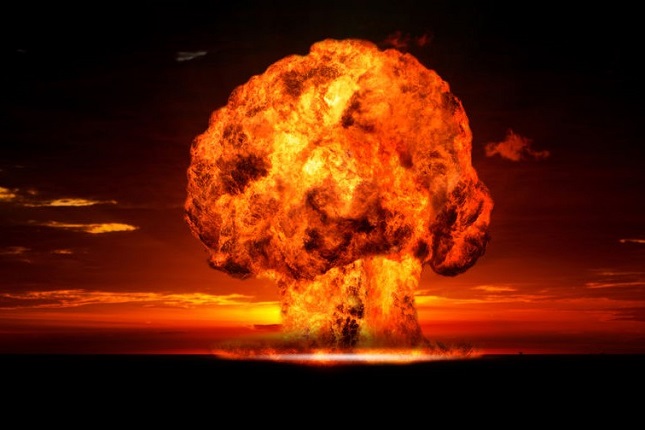The old parliament, built almost a century ago during the British colonial era, will be converted into a museum. The new building is considered the core project of the Modi administration's Central Vista Redevelopment Project, aimed at freeing the Indian capital from colonial-era traces. In his speech, Modi said that "the new parliament isn't just a building" and will witness "the sunrise of a self-reliant India."
The building which costs nearly $120 million and features national symbols such as the peacock, the lotus flower and the banyan tree, reflects India's traditional history and culture in details and strong local characteristics. This is an important part of the Indian government's series of decolonization measures and will become a great symbol.
In recent years, the Modi government has devoted itself to presenting an image of a rising India that engages in decolonization and emphasizes independent confidence. India has also undertaken large-scale actions to remove symbols of colonialism, including renaming and remodeling iconic buildings, changing budget practices associated with colonial history, decreasing the official use of English and increasing the use of the Hindi language. As a society that was also bullied by Western colonists and is dedicated to achieving national modernization, China can clearly empathize with India's desire to uphold national dignity and pursue a more independent status.
India was colonized by Britain for nearly 200 years, and the traces of colonial influence in India are both extensive and profound. It can be imagined how colossal the task of decolonization is.
In 1968, the Indian government removed the statue of King George V, located in front of India Gate, a prominent landmark in New Delhi. Then, on September 8, 2022, the Modi government renamed the "Rajpath" in front of India Gate to "Kartavya Path" on the day of Queen Elizabeth II's death. The process of decolonization has spanned half a century but continues to progress slowly, with a long road ahead.
For India, the most challenging part lies ahead - removing the remnants of colonialism from culture and the hearts of people, which is undoubtedly more difficult than changing names or removing labels. The extent to which decolonization can be achieved remains uncertain. We wish India success in achieving its goals with the least possible cost. Additionally, we would like to offer a friendly reminder to remain vigilant against the geopolitical manipulation by the West, which carries new forms of neocolonialism while eradicating the remnants of old colonialism. This reality has become quite prominent.
The Britain at that time was able to implement nearly 200 years of colonial rule over India, which had a large area and population, through divide-and-rule tactics that were far from noble. Now, the West, particularly the US, attempts a more concealed form of "divide and rule" on a larger scale. They concoct and emphasize the concept of "dragon-elephant rivalry" and engage in sinister psychological manipulation between China and India. The West no longer has the power to subdue China and India through overt means, so they resort to creating rifts between the two to fish for benefits. In a sense, this is also a form of "persistent colonialist mentality."
Nowadays, in order to drive a wedge between China and India, the West has repeatedly flattered India, deceiving India to "replace China." It takes sides in the border issue between China and India, even inciting India to stand up against China and shouting slogans like "standing with India." The West seems to be coaxing India in every way, but this cannot conceal its arrogance and exploitation toward India. It should be pointed out that this is exactly the trap for India's pursuit of the path of an independent and powerful country. If India wants to truly get rid of the colonial imprint, this ultimately depends on the development of its national comprehensive strength and strategic clarity and independence, rather than various tricks and awards from the West.
India's decolonization should truly demonstrate the unique logic, philosophy, and imagination of a civilized country, and should not fall into the geopolitical trap centered on Western power politics. Like China, India is a country with a civilization different from Western civilization, hoping to achieve national rejuvenation, and that's something the West cannot truly appreciate. China advocates promoting the construction of a community with a shared future for mankind, and India also advocates "One Earth, One Family." Both sides have Eastern wisdom in viewing regional and international situations, and it's believed they will not re-embark on the old path of Western "zero-sum game."
Asia and the world are big enough to accommodate the simultaneous rise of both China and India. China's wishes for India's development are sincere. In Chinese society, few people believe that India's economic and social development will become a threat to China. The vast majority of people agree that the two countries can achieve mutual success. We hope that India can also show more of such clarity and confidence when dealing with China and the West. This clarity and confidence are a prominent sign that India has truly emerged from the shadow of colonialism, and it is also essential for promoting multipolarity and democratization of international relations.
Photo: The picture shows India's new parliament building in the colors of the national tri-color on the eve of its inauguration in New Delhi on May 27, 2023 © AFP.
Source: The Global Times.
